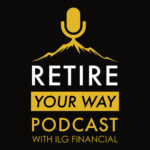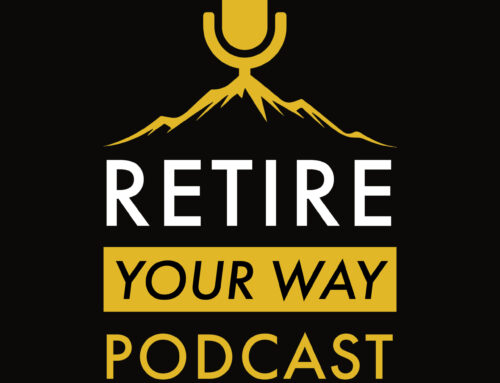 Article published by FinanceBuzz.com
Article published by FinanceBuzz.com
Written by Jenny Cohan and Edited by Michael Kurko
“You’ve tried to be responsible by planning for your retirement, but you may not be putting down the best foundation for your future. Sure, you may think you won’t be caught wasting your retirement savings and you may have already budgeted for future expenses, but there could be some surprises lurking that could spoil your plans.”
1. Losing money with high-risk investments
“It may be okay to take extra risks with your investments when you’re younger. Maybe you wanted to buy a stock that has been volatile in the past or you want to focus on a certain industry. You also have stock issued to you by your company that you want to hold on to.
“But as you get older, you may want to rebalance your portfolio with lower-risk investments. Think about switching to different stocks and how to diversify your portfolio to help you weather any market changes.
2. Less Social Security than you expected
“You’ve been putting money into Social Security for decades so it will be there for you when you retire. However, you may need to double-check your Social Security benefits and how much the government estimates you will receive when you retire.
“Also, remember that deciding when to start receiving your benefits could affect your monthly payouts. Social Security should supplement your monthly retirement costs, not cover all of them, so save accordingly. If you find that you’ll be short, look for creative ways to supplement your Social Security income.
3. Lower stock market returns
“More than half of American families have either direct or indirect investments in the stock market, and that number rises as adults get older. Unfortunately, when the stock market drops — particularly during recessions — you could see a drop in your returns as well.
“Review your strategy for investing money in stocks to make sure you can either weather market downfall without too much loss or hold on and wait for the market to recover. It could take months and possibly years for your investments to bounce back after a significant drop.
4. Less money to pay off debt
“You may have a good nest egg if you’ve been saving for retirement, but remember that your debt won’t retire when you do. Factor in any loans you still may have to pay off, such as a home mortgage or car loan, and take into account the length of those loans. A 30-year mortgage could be part of your retired life for decades to come. Also, consider any credit card bills you may need to pay off and how much you can comfortably put on your credit cards each month.”
Click here to read items five through 10!
Search
Recent Posts
 Essential Retirement Healthcare Planning Tips to Help You Get Prepared
Essential Retirement Healthcare Planning Tips to Help You Get Prepared How to Use Tax Strategies for Beneficial Mid-Year Investment Adjustments
How to Use Tax Strategies for Beneficial Mid-Year Investment Adjustments Living Longer Than You Expected: Preparing Financially
Living Longer Than You Expected: Preparing Financially Scam of the Month: A Text Message Trap
Scam of the Month: A Text Message Trap Managing Risk in Your Portfolio: What Every Investor Should Know
Managing Risk in Your Portfolio: What Every Investor Should Know Estate Planning Essentials: Building a Plan That Reflects Your Wishes
Estate Planning Essentials: Building a Plan That Reflects Your Wishes Review, Organize, and Evaluate to Refresh Your Financial Plan
Review, Organize, and Evaluate to Refresh Your Financial Plan Retirement Savings Benchmarks to Help You Hit Your Long-Term Goals
Retirement Savings Benchmarks to Help You Hit Your Long-Term Goals The Tricky Business of Spending Your Retirement Savings
The Tricky Business of Spending Your Retirement Savings Market Volatility: Learning From Lessons of Time
Market Volatility: Learning From Lessons of Time Scam of the Month: Fake Tax Forms, Real Malware
Scam of the Month: Fake Tax Forms, Real Malware How to Create a Diversified Investment Strategy for Long-Term Success
How to Create a Diversified Investment Strategy for Long-Term Success Navigating Market Volatility: Strategies to Stay on Course in 2025
Navigating Market Volatility: Strategies to Stay on Course in 2025 Rebalancing Your Portfolio: Why Now Is a Good Time to Check Your Asset Mix
Rebalancing Your Portfolio: Why Now Is a Good Time to Check Your Asset Mix What to Do About the Stock Market’s Giant Problem?
What to Do About the Stock Market’s Giant Problem?











 Megan Jones joined the ILG Financial team in 2020 as marketing director. Megan and her husband live in Fredericksburg, VA with their German Short Haired Pointer, Gus. Megan is a graduate of Longwood University and holds a degree in communications. Megan is the oldest of Dave Lopez’s three children and not only enjoys working alongside her father, but also with her cousin, Chase, who joined the ILG Financial team in 2020 as an advisor. Megan is also a fully licensed Life, Health, and Annuity agent. When not at work, Megan enjoys sitting on the back porch with family and friends enjoying food and music.
Megan Jones joined the ILG Financial team in 2020 as marketing director. Megan and her husband live in Fredericksburg, VA with their German Short Haired Pointer, Gus. Megan is a graduate of Longwood University and holds a degree in communications. Megan is the oldest of Dave Lopez’s three children and not only enjoys working alongside her father, but also with her cousin, Chase, who joined the ILG Financial team in 2020 as an advisor. Megan is also a fully licensed Life, Health, and Annuity agent. When not at work, Megan enjoys sitting on the back porch with family and friends enjoying food and music. Chase Lopez joined the ILG Financial team in 2020 as an advisor. Chase is a 2016 James Madison University graduate with a degree in management. Chase has been trained under the tutelage of Dave Lopez, who is not only the founder and managing member of ILG Financial, but also is Chase’s uncle and godfather. He also enjoys working alongside his cousin, Megan, who is Dave’s daughter.
Chase Lopez joined the ILG Financial team in 2020 as an advisor. Chase is a 2016 James Madison University graduate with a degree in management. Chase has been trained under the tutelage of Dave Lopez, who is not only the founder and managing member of ILG Financial, but also is Chase’s uncle and godfather. He also enjoys working alongside his cousin, Megan, who is Dave’s daughter. Amy Anderson joined the ILG Financial team in 2023 as the client relations coordinator. Her responsibilities include scheduling of appointments, annual check-up notifications, and annuity and required minimum distribution assistance. She is a graduate of Harding University with a degree in Computer Information Systems. Amy and her husband have two children and she enjoys reading, crocheting, music and spending time with her family.
Amy Anderson joined the ILG Financial team in 2023 as the client relations coordinator. Her responsibilities include scheduling of appointments, annual check-up notifications, and annuity and required minimum distribution assistance. She is a graduate of Harding University with a degree in Computer Information Systems. Amy and her husband have two children and she enjoys reading, crocheting, music and spending time with her family. Jessica Carson joined the ILG Financial team in 2018 as an agent. Jessica and her husband have four children, two dogs, 3 barn cats, 5 chickens, and three parakeets. She indeed loves her children and pets! When not at work, Jessica enjoys playing the piano and cello as well as traveling and spending time outside with her family, hiking, fishing, and boating.
Jessica Carson joined the ILG Financial team in 2018 as an agent. Jessica and her husband have four children, two dogs, 3 barn cats, 5 chickens, and three parakeets. She indeed loves her children and pets! When not at work, Jessica enjoys playing the piano and cello as well as traveling and spending time outside with her family, hiking, fishing, and boating. Terri Center joined the ILG Financial team in 2019 as client services manager. She handles client records, application processing, and gathering information to provide a professional and friendly experience with all of our clients. Terri is a graduate of Oakland University. She is married and has two children. She enjoys hiking, family time, and puzzle challenging video games. She also likes to share her creativity in her canvas paintings and sewing projects.
Terri Center joined the ILG Financial team in 2019 as client services manager. She handles client records, application processing, and gathering information to provide a professional and friendly experience with all of our clients. Terri is a graduate of Oakland University. She is married and has two children. She enjoys hiking, family time, and puzzle challenging video games. She also likes to share her creativity in her canvas paintings and sewing projects.